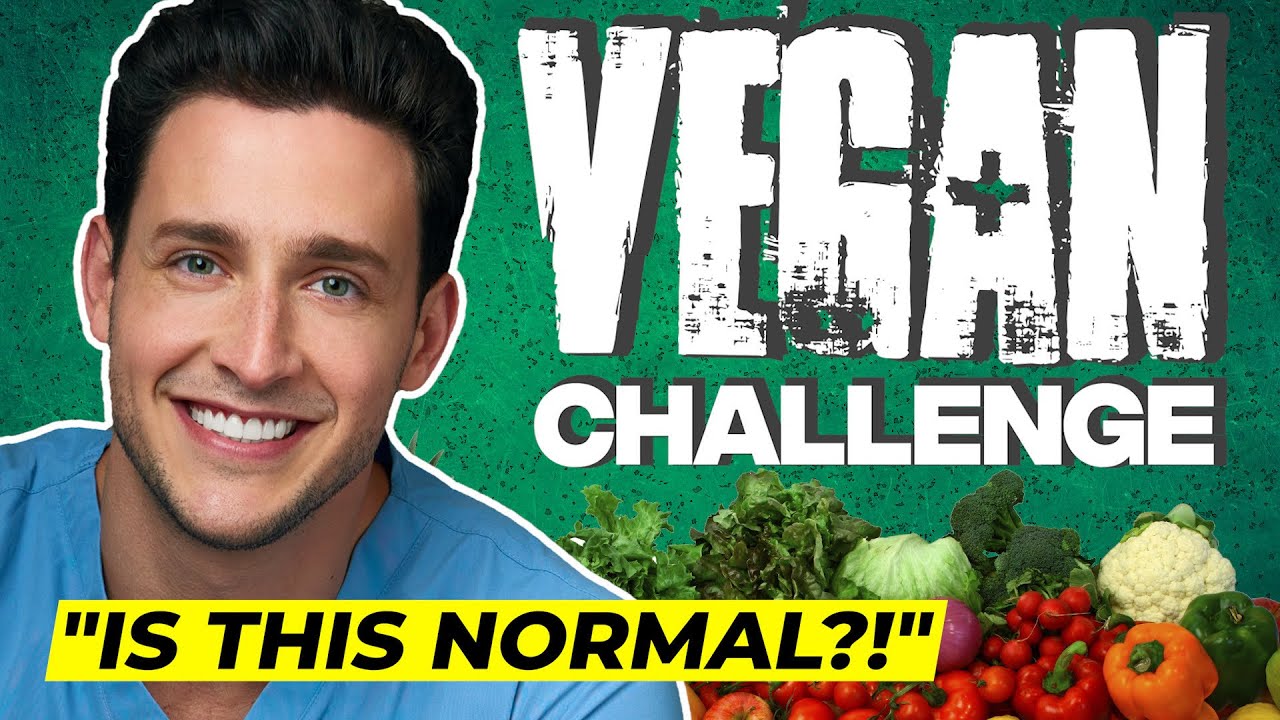30 Day "Primal Diet" Results
Summary
TLDRIn this video, the speaker shares their experience after following a strict Paleo diet for 30 days. The Paleo diet focuses on eating natural foods like vegetables, fruits, and meat while avoiding processed foods, grains, and dairy. The speaker discusses how it helped improve their energy levels, reduce cravings, and improve their emotional well-being. They emphasize the importance of being mindful of what we consume, as processed foods can negatively impact health over time. The speaker encourages viewers to experiment with their diets to find what works best for them.
Takeaways
- 🥗 Paleo diet mimics early human eating habits, focusing on vegetables, animals, and fruits while excluding dairy, grains, and processed foods.
- 🍖 Main paleo meals consist of meats, eggs, vegetables, fruits, and nuts, offering a satisfying and unrestricted eating experience as long as it's natural foods.
- 🍽️ Eating out can be challenging due to hidden processed ingredients like oils and preservatives in many dishes, even at healthier restaurants.
- ⚠️ We need to be cautious of what we consume, as the food industry prioritizes profit over health, leading to unhealthy additives in many packaged foods.
- 🛑 Detox symptoms like fatigue can occur when starting paleo, especially from reducing carbohydrates, but energy levels stabilize and improve after the adjustment period.
- 💡 Taking full responsibility for what we eat can break cycles of stress eating and cravings, leading to better long-term health and energy levels.
- 🌾 Personal experience showed a gluten intolerance, revealing the benefits of removing grains from the diet, resulting in mental clarity and reduced inflammation.
- 🧠 Eating cleaner leads to a more stable emotional state, with less mood swings and a stronger resilience to stress, improving overall mental health.
- 🔍 It's important to experiment with different diets to see what works best for your body, and being honest about how certain foods truly make you feel.
- 📖 Food labels can be misleading with trendy terms like 'organic' or 'gluten-free', so it's essential to research ingredients and avoid highly processed foods.
Q & A
What is the Paleo diet?
-The Paleo diet aims to mimic what early humans would have eaten. It primarily consists of vegetables, animals, and fruits, excluding dairy, grains, and processed foods. The idea is to eat natural foods that come from the earth, which are thought to be easier on the body and reduce inflammation.
What were the main foods the speaker had to stop eating while on the Paleo diet?
-The speaker had to stop eating grains like oats, rice, and bread, as well as dairy products like butter and cheese, and any processed oils.
How does the speaker describe the ease of following the Paleo diet?
-The speaker found the Paleo diet sensible and fairly easy to follow, especially when cooking at home. Meals mainly consisted of meat, eggs, potatoes, and vegetables, which were satisfying and allowed for as much consumption as desired, as long as the foods were whole and natural.
What challenges did the speaker encounter when eating out on the Paleo diet?
-The speaker found it challenging to eat out, even at healthier restaurants, because many dishes contained processed oils, dairy, or sugars. Packaged grocery store items also often contained preservatives or other unhealthy ingredients.
What physical effects did the speaker notice during the first week of the Paleo diet?
-During the first week, the speaker felt their body detoxing, likely due to a reduction in carbohydrate intake. This resulted in feeling fatigued for a few days, but afterward, they experienced more sustained energy, fewer crashes after meals, and reduced cravings.
What was the speaker's main takeaway about the responsibility of food consumption?
-The speaker emphasized that individuals must take full responsibility for what they consume. Many people fall into cycles of stress, cravings, and brief satisfaction, only to feel worse later. Eating unnatural, processed foods may lead to long-term health problems, even if they don't immediately cause issues.
How did the Paleo diet affect the speaker’s emotional health?
-The speaker noticed that eating cleaner resulted in fewer mood swings and a more balanced emotional state. They felt that their entire system, including their emotional health, felt cleaner and more resistant to stress, which they considered more important than just physical health.
What did the speaker discover about their gluten sensitivity during the Paleo diet?
-The speaker discovered that they had a mild intolerance to gluten, which they had built up over years of eating bread and grains. While they didn’t notice the effects before, removing gluten helped them feel better both physically and mentally.
Does the speaker recommend the Paleo diet for everyone?
-The speaker doesn’t claim that the Paleo diet is for everyone, but encourages experimentation to see how different foods affect each individual. They stress the importance of being honest about how certain foods make you feel, even if they’re foods you love.
What advice does the speaker offer regarding processed foods and food labels?
-The speaker advises caution with processed foods and food labels. Even products labeled as 'organic,' 'keto,' 'plant-based,' or 'gluten-free' may contain unhealthy ingredients. It's important to do your own research and avoid being misled by marketing tactics.
Outlines

此内容仅限付费用户访问。 请升级后访问。
立即升级Mindmap

此内容仅限付费用户访问。 请升级后访问。
立即升级Keywords

此内容仅限付费用户访问。 请升级后访问。
立即升级Highlights

此内容仅限付费用户访问。 请升级后访问。
立即升级Transcripts

此内容仅限付费用户访问。 请升级后访问。
立即升级浏览更多相关视频

🔥 How I Lose 6KG in 30 Days? 😱 Easy Weight Loss Tips | Mr.GK

How to Change Your Life in 30 Days: Fit in 30 Challenge

How to Gain Weight Fast For Skinny Guys (Full Workout and Diet Plan!)

Doctor Mike Goes VEGAN For 30 Days | Here's How My Body Reacted...

This Is What Happen | One Week Of THE CARNIVORE DIET

What is Keto Diet | How to Lose Weight with Keto diet | Get Free Keto Diet Plan | Urdu/Hindi | DrWsm
5.0 / 5 (0 votes)
